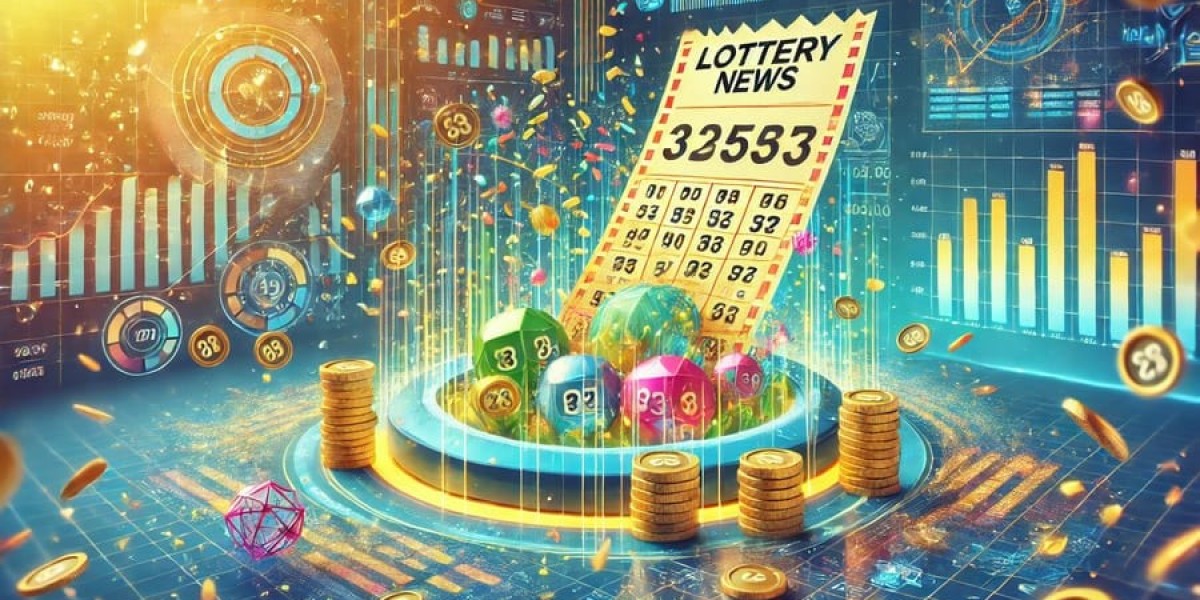Some lottery winners select to give back to their communities, turning their good fortune into opportunities for others.
Some lottery winners select to give back to their communities, turning their good fortune into opportunities for others. A notable instance is the story of a Florida couple who won $2 million and used a portion of their winnings to ascertain a local scholarship fund for underprivileged students. Their determination to spend cash on training reflects a growing trend where winners use their wealth for social good. A survey performed by the Dave Thomas Foundation revealed that approximately 18% of lottery winners donate a minimal of 10% of their winnings to charitable causes. This not solely adjustments the lives of those they help but in addition fosters a way of success and purpose among the many winners themselves.
To grasp the importance of lottery number mixtures, one should first understand the basic rules behind lotteries themselves. Most lotteries operate on a easy premise: gamers choose numbers from a predetermined range, and if their chosen numbers match those drawn through the draw, they win a prize. The key lies in the mixtures of numbers that might be selected.
The perception in
Lotto Winning Probability lucky charms finally hinges on psychology. Research indicates that when individuals feel they have luck on their side, they are more likely to interact in behaviors that promote success. This phenomenon is named the placebo effect—where a person's perception in the effectiveness of something can lead to tangible outcomes. In the case of lottery players, using a lucky allure can improve their emotions of hope and optimism, which may lead them to play extra typically or choose their numbers extra confidently. Additionally, the communal side of sharing fortunate charms or strategies with associates or family can further bolster this impact. Psychological studies have shown that social conversations about luck can enhance one’s total perception in private success, leading to elevated participation in lottery games.
While lotteries can present funding for essential providers, they can be seen as regressive forms of taxation, disproportionately affecting lower-income gamers who spend a bigger proportion of their earnings on lottery tickets. Critics argue that these video games can lead to monetary hardships, producing a need for responsible gaming initiatives and discussions surrounding gambling dependancy.
Another effective technique is to discover the idea of "hot" and "cold" numbers. Hot numbers are those which were drawn regularly in recent draws, while chilly numbers haven't been drawn for a while. Some players select to bet on sizzling numbers, hoping that their streak will proceed, whereas others choose cold numbers, believing a return is imminent. However, it is crucial to remember that lotteries are random, and past attracts don't affect future outcomes.
Lotteries have a protracted and storied history, capturing the imagination of individuals across the globe. These video games of likelihood date back thousands of years, with the earliest recorded lottery happening in China around 205 BC. Today, lotteries exist in various forms, from state-run games to personal lotteries. Each lottery has its own set of rules, strategies, and odds. However, the common thread stays: the allure of profitable vast amounts of money by way of a lucky combination of numbers. Understanding the basic elements of how lotteries function might help you develop effective strategies to foretell
Lotto Analysis numbers accurately.
The idea that sure objects or symbols can bring luck dates back hundreds of years. In many cultures, people have sought out amulets, talismans, and symbols to invoke favorable outcomes or shield in opposition to misfortune. In the context of lotteries, fortunate charms have taken on particular meanings tied to numbers, colours, and private stories. For instance, many gamers believe that numbers associated with significant life events—such as birthdays or anniversaries—carry a better likelihood of bringing luck. Furthermore, particular objects, such as a four-leaf clover or a rabbit's foot, have long been considered common symbols of excellent fortune. These charms embody a deep-rooted psychological perception that believing in luck may improve one’s odds, an idea reinforced by various studies exhibiting that positive thought can improve performance in many areas of life.
Understanding the probabilities involved in lottery video games can provide crucial insights for gamers. The chance of winning a lottery jackpot is extremely low, usually lower than one in a number of million, relying on the specific recreation guidelines. To illustrate, let’s consider Powerball, one of the well-liked lottery video games in the United States, which boasts odds of successful the jackpot at roughly 1 in 292 million.
Understanding
Lotto Winning Probability jackpot odds can considerably influence participant psychology. The astonishingly slim chances of successful can create an underlying sense of despair among gamers, however it can also foster a way of hope and pleasure. This paradox is what keeps hundreds of thousands returning to play week after week, despite figuring out the odds.
 신뢰할 수 있는 토토사이트 찾기: 먹튀검증의 중요성
Oleh edwinsilcock69
신뢰할 수 있는 토토사이트 찾기: 먹튀검증의 중요성
Oleh edwinsilcock69 The Little-Known Benefits To Mini Freezer Uk
Oleh frydge0255
The Little-Known Benefits To Mini Freezer Uk
Oleh frydge0255 Power Players and Religious Police: The Fate of Sports Betting in Nigeria
Oleh leonelslate978
Power Players and Religious Police: The Fate of Sports Betting in Nigeria
Oleh leonelslate978 Does Aviator Betting Lead to Riches: Betting Methods and Profitable Methods
Oleh ilanasleeman18
Does Aviator Betting Lead to Riches: Betting Methods and Profitable Methods
Oleh ilanasleeman18 15 Pinterest Boards That Are The Best Of All Time About Address Collection Site
Oleh jujojula9034
15 Pinterest Boards That Are The Best Of All Time About Address Collection Site
Oleh jujojula9034

